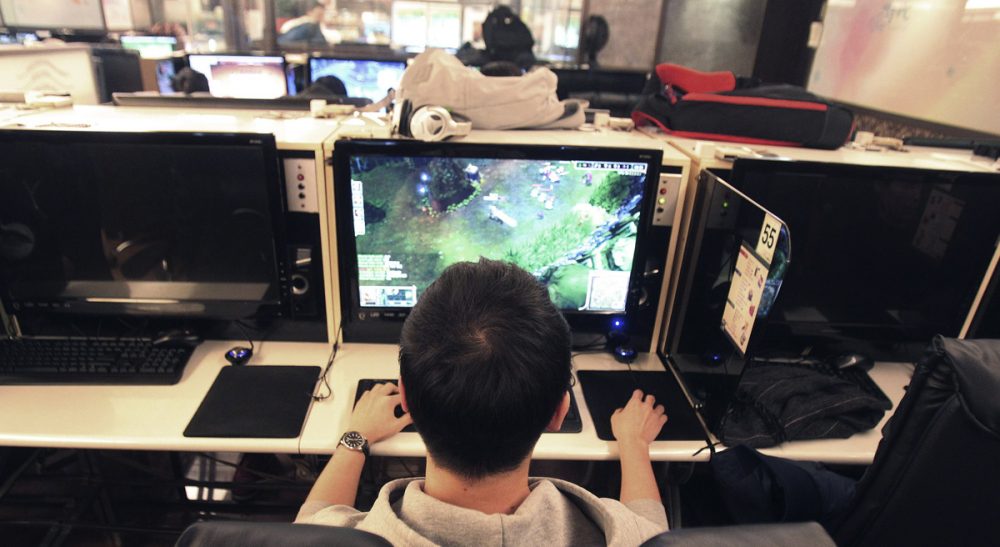Advertisement
Stare At A Screen All Day? It's Doing More Damage Than You Think

Our digitally tethered, couch potato lifestyle has reached its logical conclusion. Namely, death and ignorance.
This week, I came across two different, independently released studies. One suggests that all our screen time is killing us. The other study finds that reading texts on screens, instead of on the printed page, makes us understand less. According to clinical researchers who published a paper in the Journal of the American College of Cardiology, “there is an independent, deleterious relationship” between “screen-based recreational sitting time” and not only cardiovascular disease “events” but “all-cause mortality.” (I love that phrase “screen-based recreational sitting time,” as opposed to what I get paid for, which I suppose is “screen-based occupational sitting time.” I had to look up “deleterious.” Huh. It doesn’t mean screen time can “delete” you.)
If you’re on your butt into front of an LCD, LED, OLED, plasma or Dilithium screen, you’re dying at a higher rate than if you were on your feet, or staring at that cute office mate over in central services.
Essentially, what the study concludes is that if you spend a lot of time — “a lot” being more than four hours per day — gazing into your iPad, your iPhone, your smart watch (yes, this is a thing) or in front of other screens, you’re almost 50 percent more likely to kick the bucket. Not just by heart attack: You’re 50 percent more inclined to die for any reason. What’s worse, it doesn’t matter if you exercise like hell, or don’t smoke, or are as skinny as a kale stalk, or worship the correct deity. If you’re on your butt into front of an LCD, LED, OLED, plasma or Dilithium screen, you’re dying at a higher rate than if you were on your feet, or staring at that cute office mate over in central services.
That’s sobering news. And it’s enough to make us all install standing desks with treadmills in our offices, our man caves or, in my case, my parents’ basement.
The other bummer comes by way of two studies from Norway's Stavanger University. The first analyzed the reading habits of Norwegian 10th graders. Students were given identical texts to read in both book and screen form, then asked questions to test their comprehension. The results? Whether reading fiction or nonfiction, “your understanding is deeper and longer lasting than if you read that same text on a computer,” says ScienceNordic. A second study in which 50 readers were given a short story to read concluded that "paper readers did report higher on measures having to do with empathy and transportation and immersion, and narrative coherence," whereas Kindle readers had a hard time reconstructing the plot. The researchers believe that the tactile, physical experience of reading a book, from touching a page to flipping back and forth through that one confusing chapter, creates spatial relationships that help readers become more deeply involved with a text, able to use the content in multiple contexts and better remember a story. Whereas, the researchers conclude, “screens are best for superficial and speedy reading.” Perhaps the study only applies to 15- and 16-year-old Scandinavian ski-punks, but my guess an experiment on other demographic groups — such as 40-something American nerds — would produce the same results.
Before we die, in those rapidly dwindling and precious hours still alive on planet Earth, obsessively consuming all manner of digital texts -- Tweets, emails, epic fantasy series -- via our MacBooks and Kindles, we assume we are bettering our lives.
Which brings me back to my original brainstorm about death and ignorance. If we spend multiple hours each day in front of a screen, we’re going to die. Before we die, in those rapidly dwindling and precious hours still alive on planet Earth, obsessively consuming all manner of digital texts — Tweets, emails, epic fantasy series — via our MacBooks and Kindles, we assume we are bettering our lives. We suppose we are advancing the human race. We conflate “texting” with “communicating,” and skimming “50 Shades of Grey” for the good parts (are there any good parts?) on our Samsung Galaxy S5 Minis with “reading.” But it turns out we’re not even retaining what we’re reading. We’re actually getting less smart more quickly than if we’d just read the Boston Globe in its big, unwieldy, crinkly version, printed on that substance as precious as saffron-infused methamphetamine called newsprint.
I figure the only solution is to walk around while reading smart-looking, actual ink-and-paper books like “War and Peace” and “All I Really Need to Know I Learned in Kindergarten,” just like we did back in the olden days of the late 1980s.
That’s what made me so smart. And fit. And so very able to retain...uh...What was I talking about?
Related:
